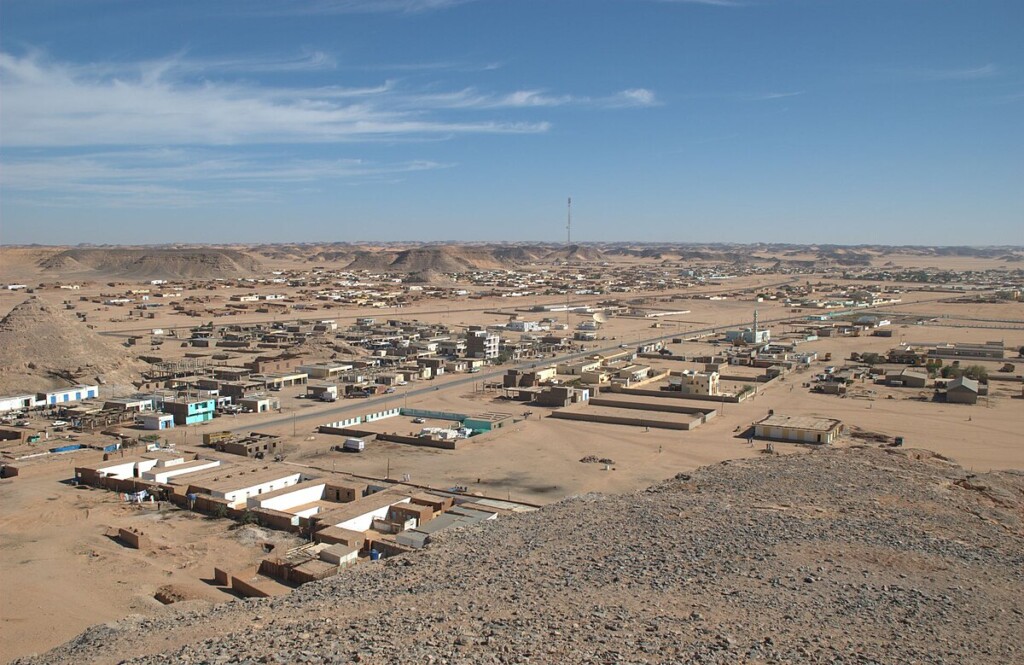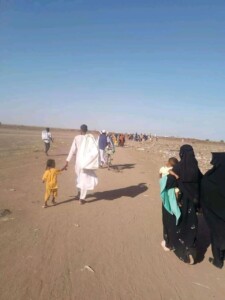Thousands await Egyptian visa for months in Sudan border town

Wadi Halfa at the Sudanese-Egyptian border (File photo: Wikipedia)
For the many people who fled the fighting between the Sudanese army and the Rapid Support Forces (RSF) in the northern direction, Wadi Halfa in Northern State is the last stop before the Egyptian border. Thousands are still stranded there, many of them for the fifth month, as they await their visas from the Egyptian consulate.
Sudanese lawyer Amr Kamal told Radio Dabanga that after spending four and a half months in Wadi Halfa, he still has not obtained a visa.
The number of Sudanese stranded in Wadi Halfa now ranges between 15,000 to 20,000, exceeding the city’s population, he said. They are distributed over 50 shelter centres established by the town’s emergency committee.
The lawyer criticised the limited interventions by international organisations and United Nations agencies, especially in the areas of food and health care. “Food aid was cut off for more than a month, which exacerbated the suffering of the stranded,” he said. “The weak health services and shortage of medicines and specialists are affecting many of those stranded here.”
Kamal said that he expects the suffering to worsen during the upcoming period with the advent of winter. “The financial resources of the stranded people have dried up due to their long stay in the town, and they cannot afford to buy food and drink anymore.”
For months, the border towns are overwhelmed by people seeking safety in Egypt. The towns lack sufficient services, adequate shelter, and can hardly meet the demand for extra food and water.
Pharmacies in these areas are running low on crucial medical supplies, including intravenous fluids and insulin, exacerbating the health challenges, the lawyer said.
Visa delays
To enter Egypt, new arrivals are required by Egyptian authorities to possess valid travel documents and entry visas*. Visa rules and allegations of corruption have further impeded their entry, with Sudanese and Egyptian brokers allegedly offering fast-track visas for large fees.
Obtaining the necessary documents, including that of a yellow fever vaccination, can take several weeks, leaving many refugees in limbo.
“The procedure initially took several days during the first period, slowly extending to weeks. Now, the typical waiting period for applicants has extended to three months”, Kamal said and explained that the current administrative problems are related to registration lists for visa applicants.
He himself registered his name on the list of visa applicants three months ago, but discovered that the list was not approved by the Egyptian Consulate. “We had to re-register and most probably we’ll to wait until the end of November.”
Egypt has received more than 250,000 Sudanese refugees since war erupted between the Sudan Armed Forces (SAF) and the RSF mid-April.
_____________
*In 2004, Egypt and Sudan signed the Four Freedoms Convention, allowing free movement of citizens between both “brotherly countries”, as well as working and owning property with no special permit. Soon however, it became clear that Sudanese men between 18 and 50 years old still needed a visa to be able to enter Sudan. In 2018, the authorities in Cairo officially requested a restriction on the entry of Sudanese to Egypt. On June 10 this year, after more than 200,000 Sudanese had sought refuge in Egypt, Cairo decided to oblige all Sudanese to obtain an entry visa.











 and then
and then